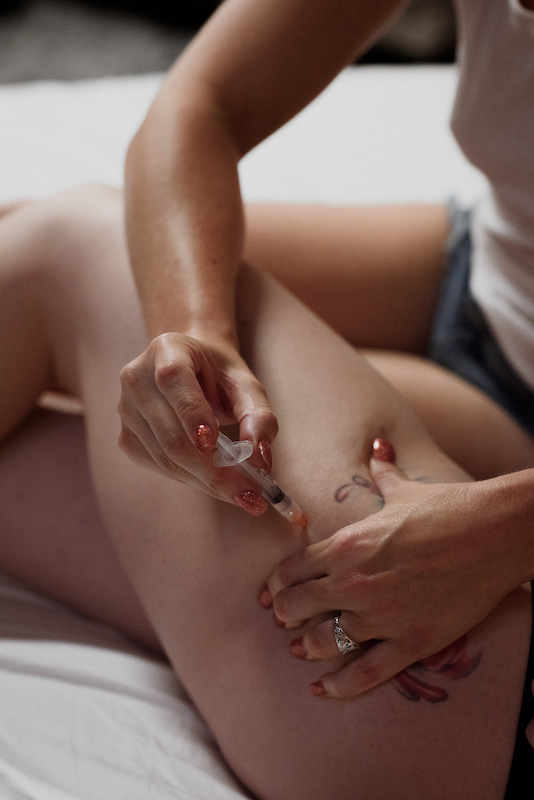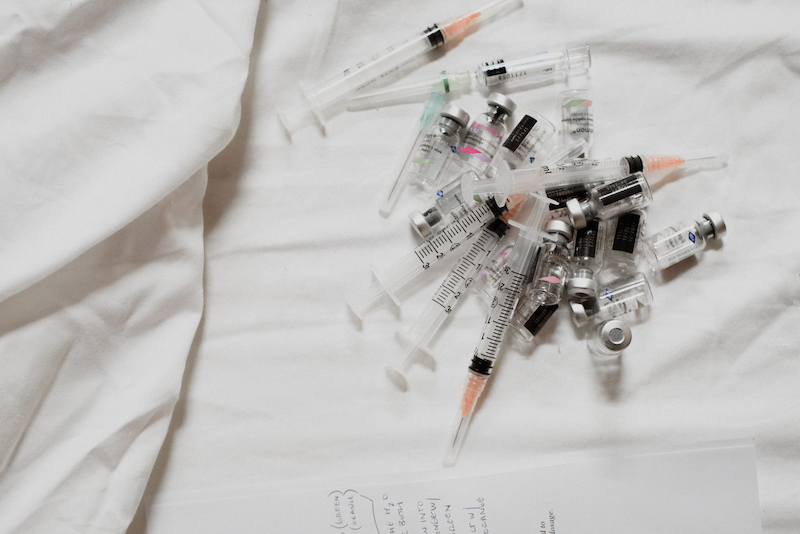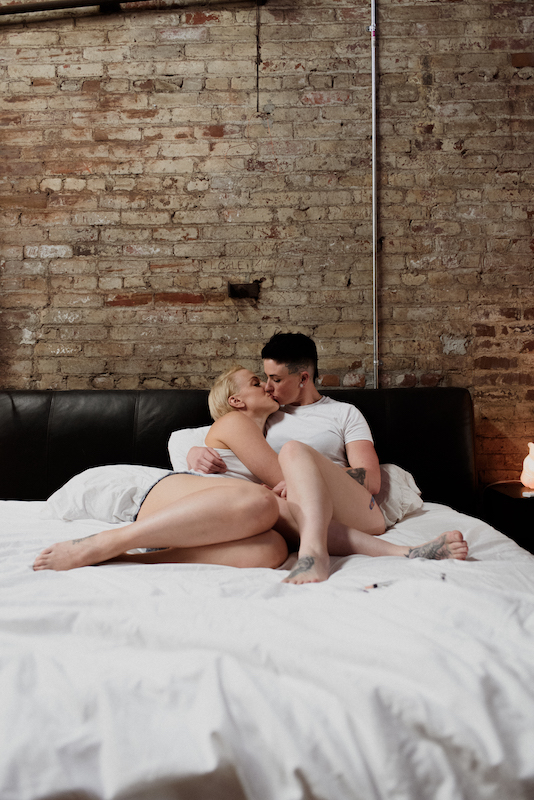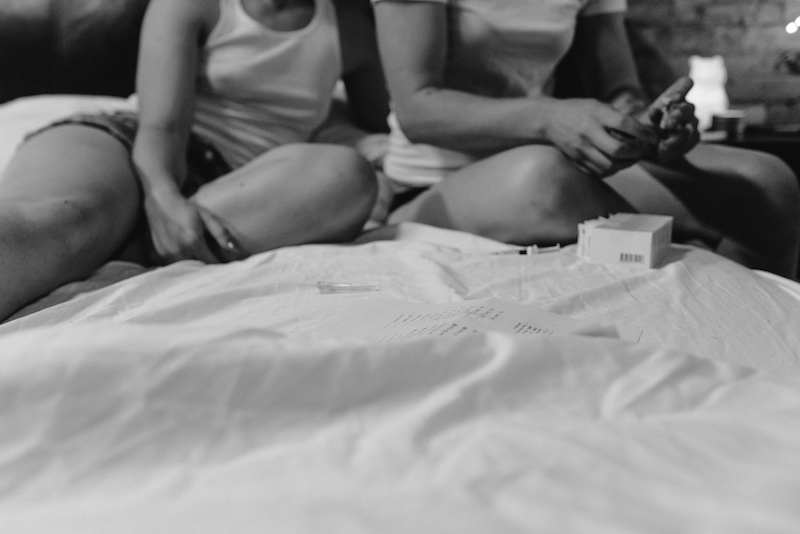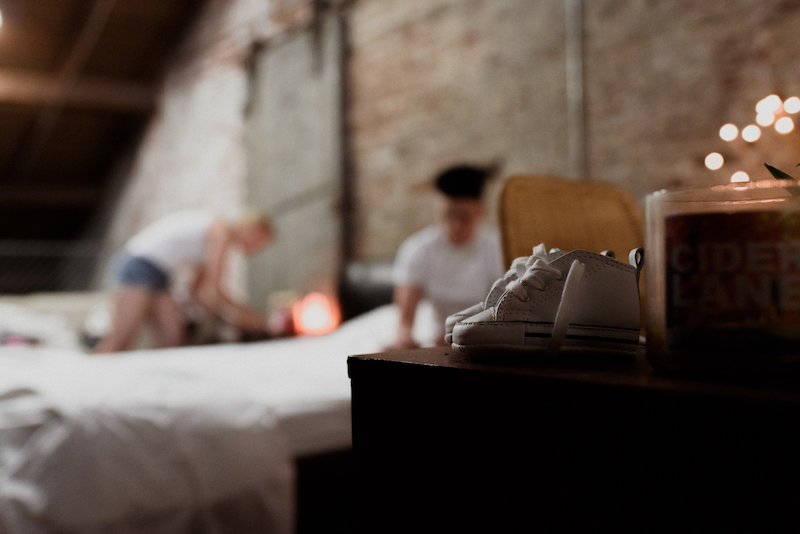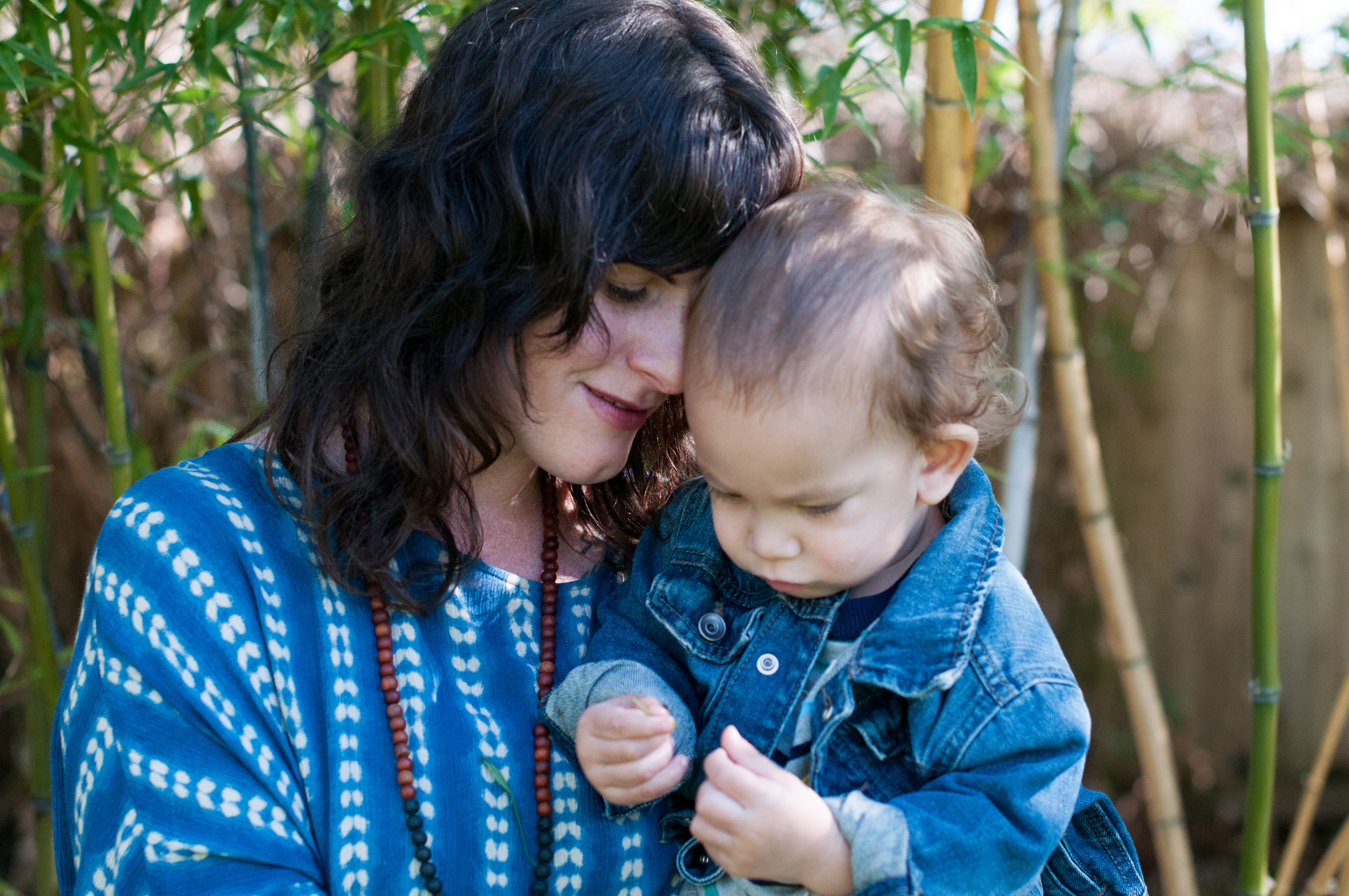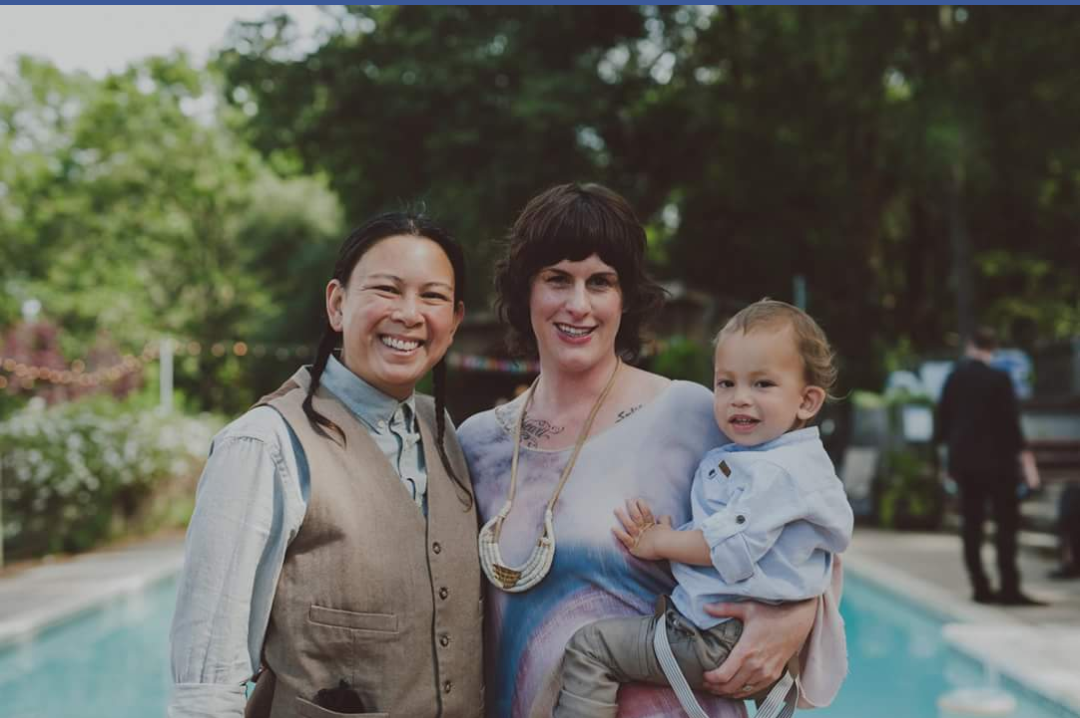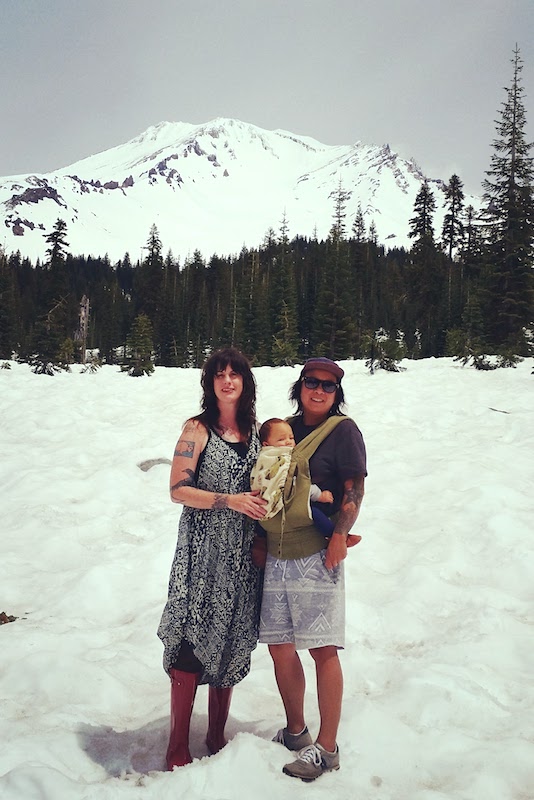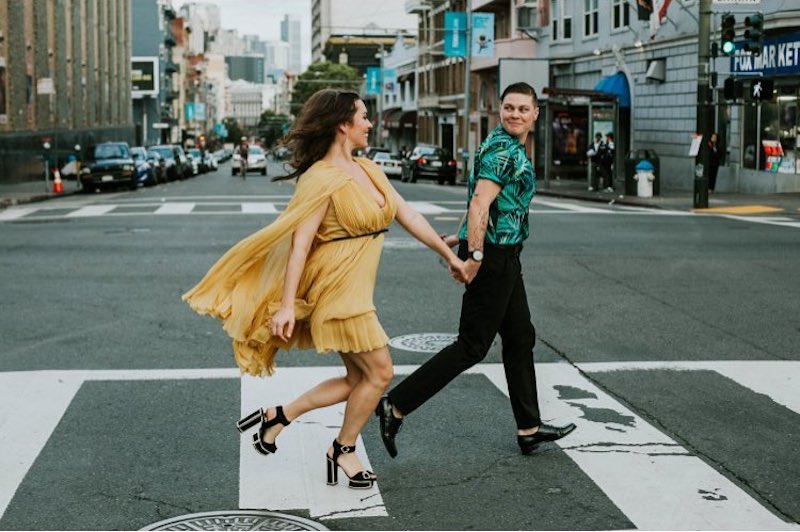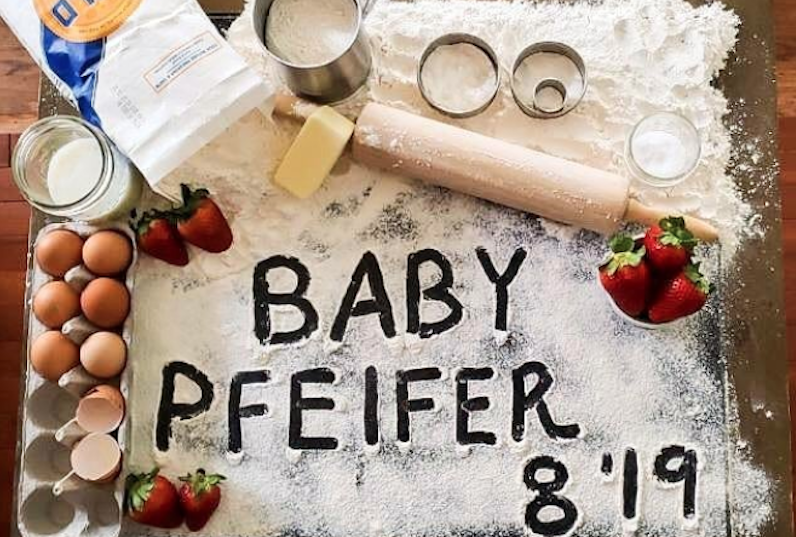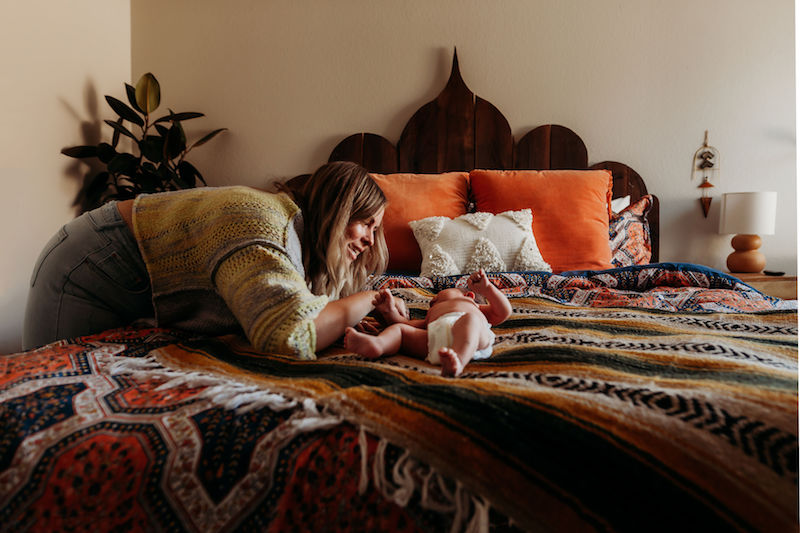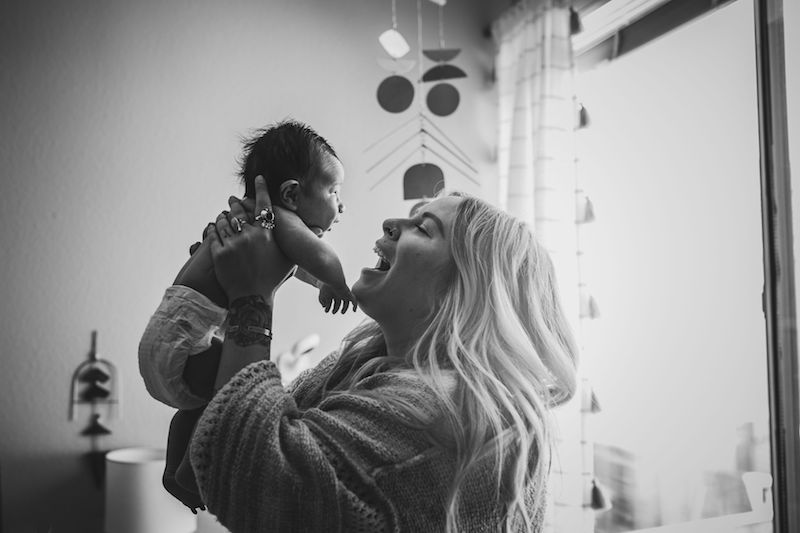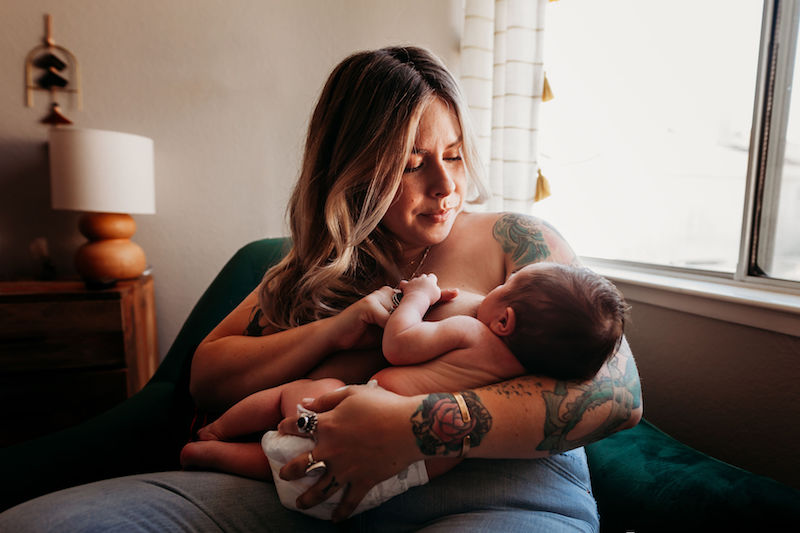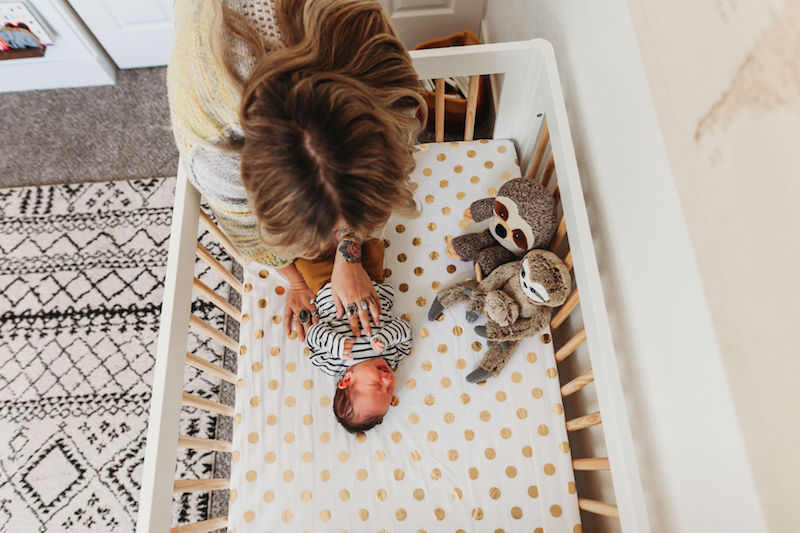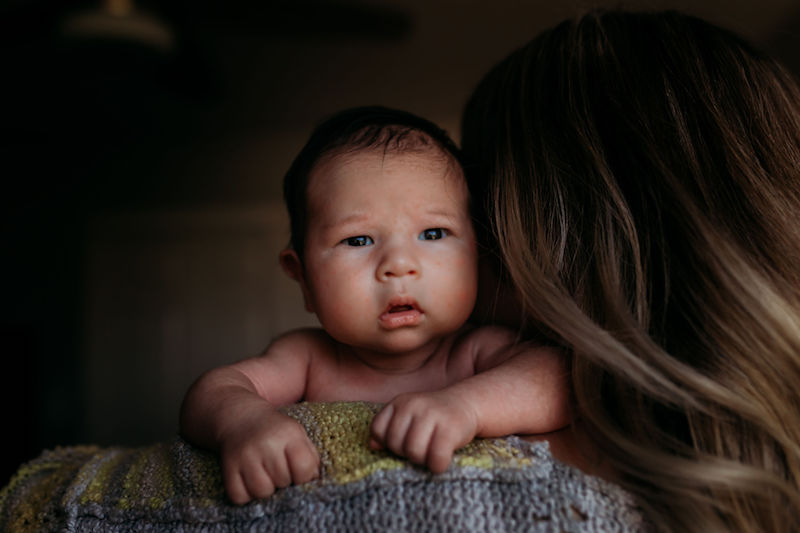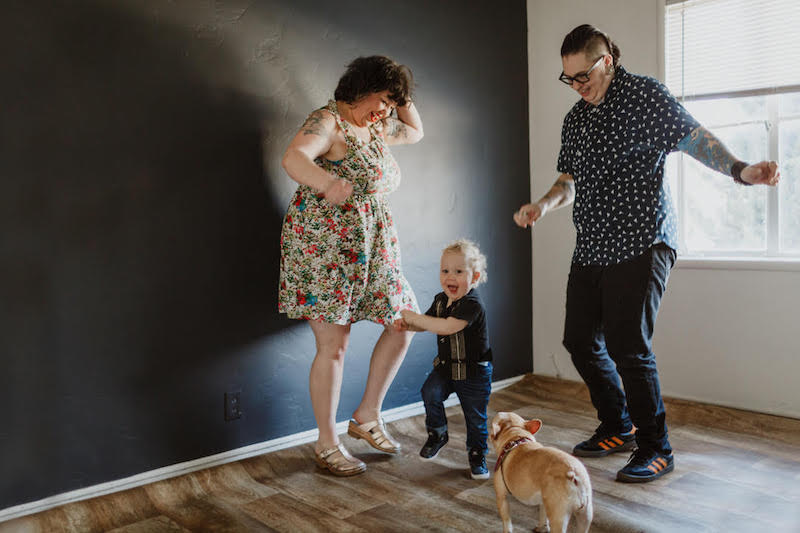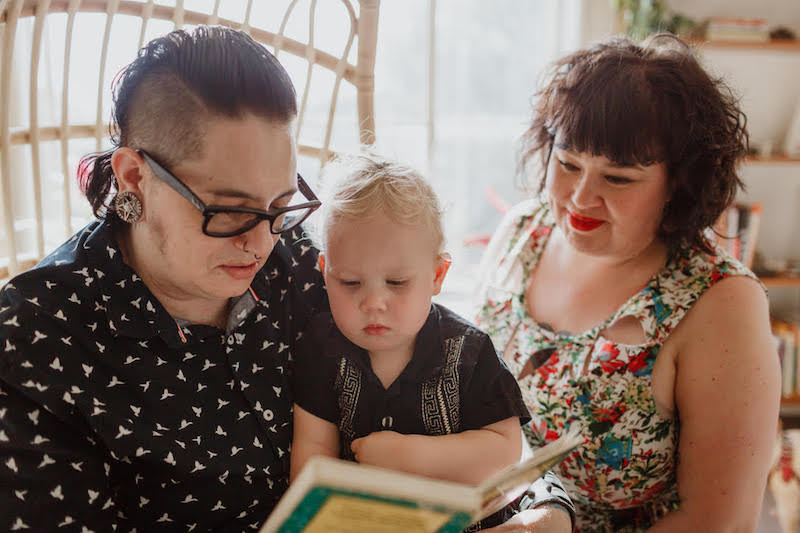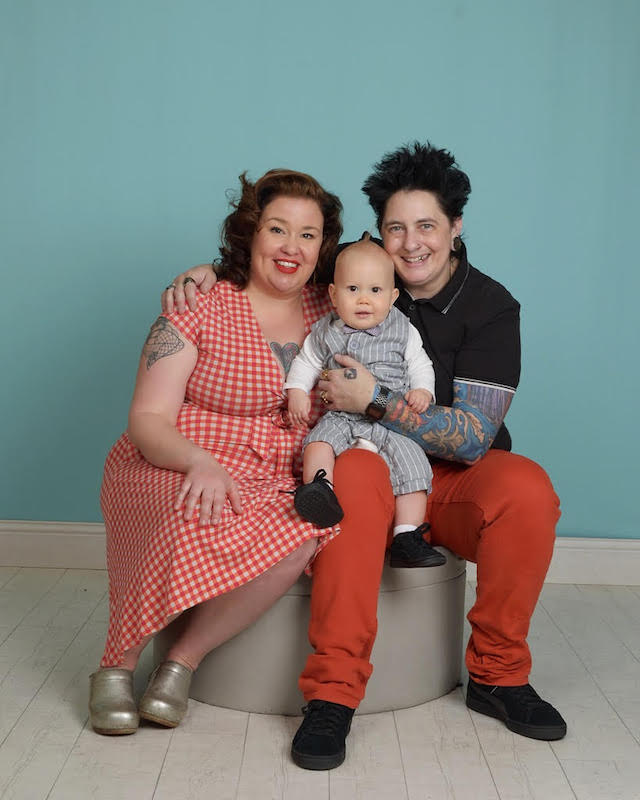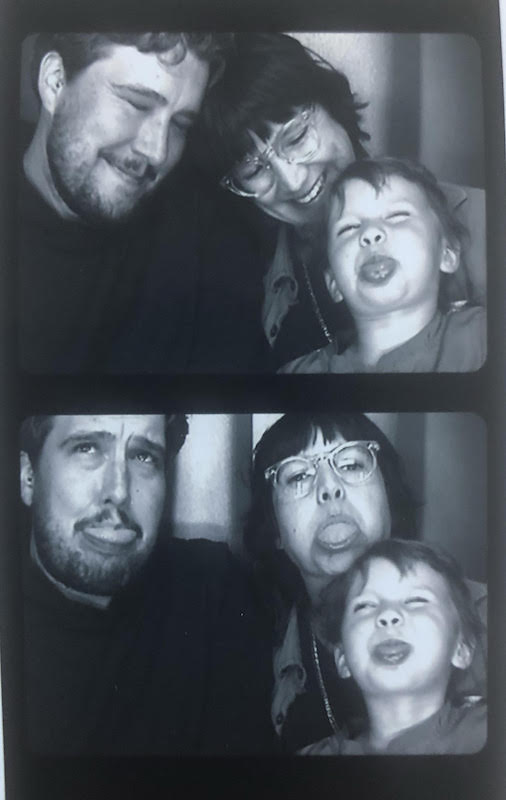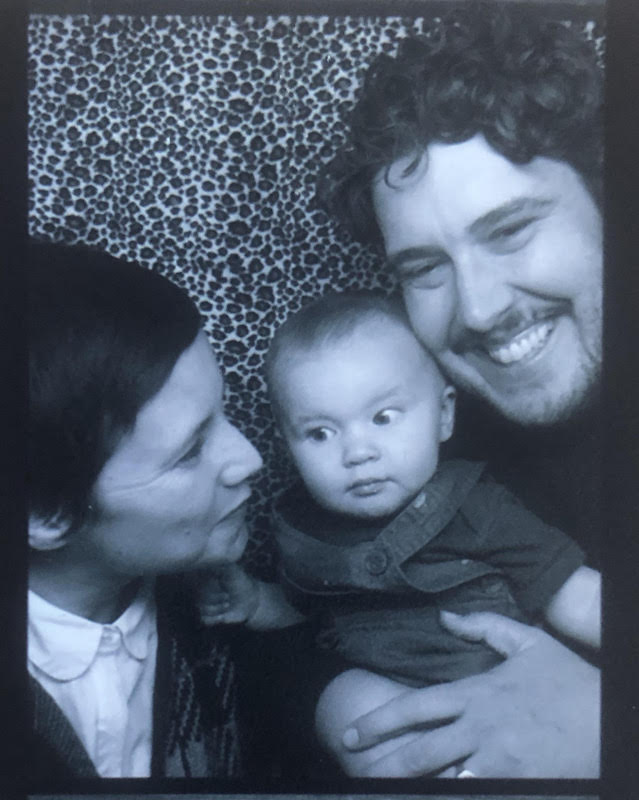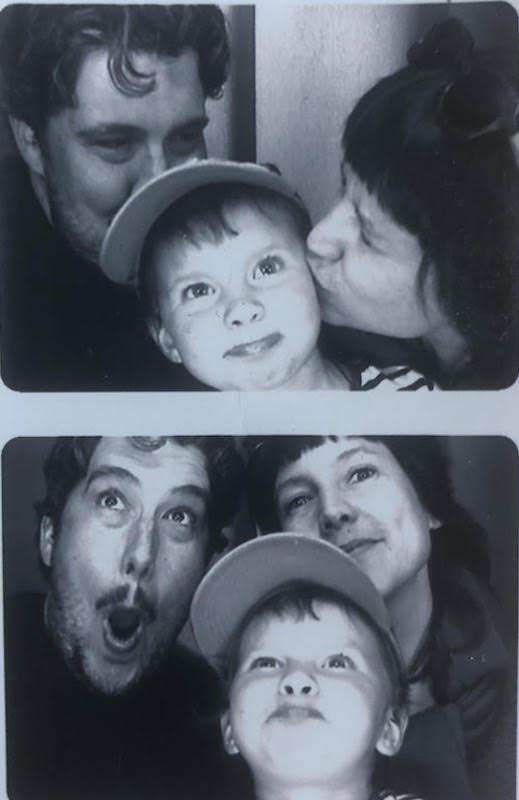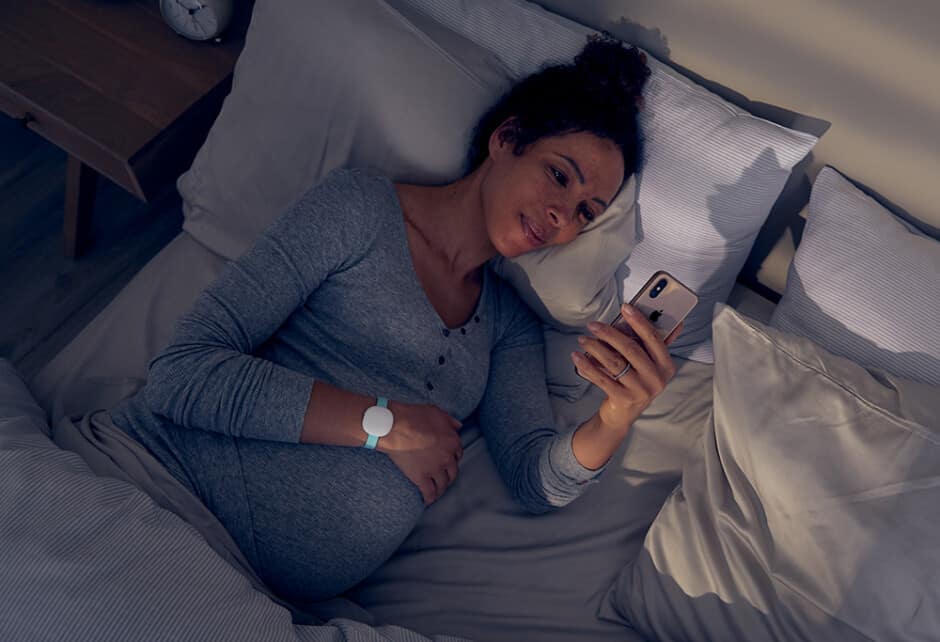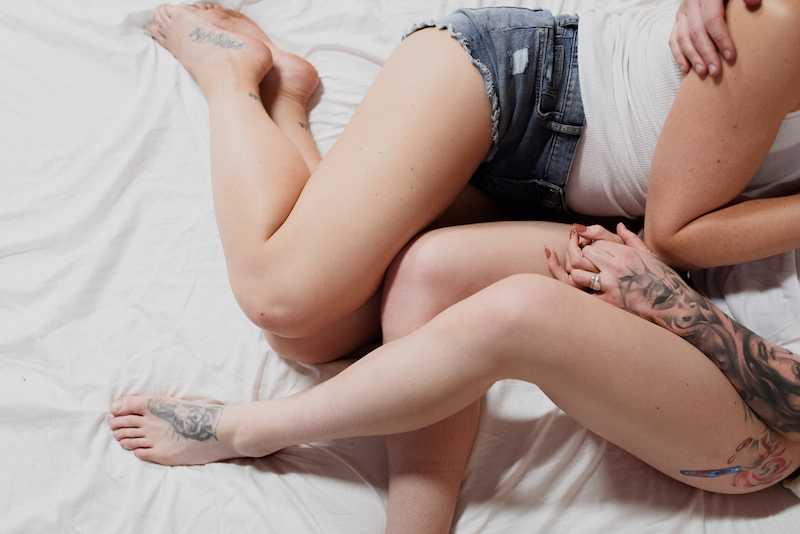
Queer Mamas On The Many Ways to Make a Baby
Written by Erin Feher
Photography by
Photography by Dan Vigil
Family may be the destination, but there are dozens of different routes to get there—and even more being charted by the day. The LGBTQ community has long been at the forefront of creative family building, and a new generation of queer mamas are not only tapping into the latest technological advances in fertility medicine, but sharing their stories, struggles, and even spare meds thanks to growing online communities. We asked some new or expecting queer mamas to tell us all about their reproductive journeys, from deciding on doctors, donors, or the DIY route. Click through the full slideshow below to meet five beautiful families and learn all about how they brought their babies into the world—and prepare to be inspired!
Looking for more ways to celebrate Pride this month? Check out these 35+ Kids’ Books that Spotlight LGBTQ Characters and find out why Gay Characters on Kids’ T.V. Are still Painfully Lacking.
-
Where are you currently on your family journey?
"We have been in the process of doing IVF since about January, and just finished what we hope will be the second-to-last stage, which is implantation; Priscilla’s embryo was implanted in me 12 days ago and we are just about to test to see if I’m pregnant! We explored a lot of options, for queer folks there can be so many. When Priscilla and I started dating, I was in the process of wrapping my head around getting pregnant on my own and so was exploring sperm banks and doing intra-cervical insemination or possibly intra-uterine insemination. We talked a lot about what her level of involvement could be and she was very on board, which moved us to talking about doing reciprocal IVF as one of our options. We didn’t make any decisions for a long while, and when we started to revisit it, we were excited about the option that felt like the both of us making a family and her getting me pregnant. We joked often that if biology allowed the easy manifestation of what we wanted, she would have put a bun in the oven a long time before, but instead we could choose IVF to make it happen. We first spoke with a clinic in Texas that had developed an interesting procedure called Invocell that was revolutionizing how queers could make babies but ultimately, while incredibly cool, it wasn’t the right fit for us. We had considered going to Barbados for IVF at the beginning of our time researching but thought it might be too far. We circled back to it because an awesome Instagram friend and her husband went there, loved it and connected us with a Facebook group of over 100 women who had used Barbados Fertility. Because they all had stellar things to say we went down the road of going there and we are so glad we did. The reason we even started looking abroad was due to the costs of IVF in the U.S.—it's a monster! About $10,000 more than we spent, and really beyond what we could afford. I am aware that being able to do IVF at all is a privilege, and we are completely aware of how in-accessible it can be— most insurance doesn't cover it, especially as a chosen method of conception for families of any kind; often the process to get any kind of coverage for it includes a grueling and dehumanizing process to prove infertility. It's a soapbox of mine for sure—I have too many."
-
What has surprised you about this process?
"So much has been a surprise! We knew that doing IVF would include a lot of hormonal interventions, but were both surprised by the intensity of our experiences on birth control. We needed to use birth control because of the distance to Barbados and the need to time things just right, and it worked in that sense. Unfortunately, it was hormonally hard on both of us and mental-health wise we felt not at all like ourselves. It was actually lucky though that Priscilla was on it first and then me, because there was a level of compassion that would not have been as available without the physical understanding we each had for one another. That was the most trying time we had during the process. On the more fascinating side, I have been so surprised at all I’ve learned about my body and uteruses and hormones and the magic of reproductive science. I’m a sex therapist and I like to think I know quite a bit about all these things, but I was still blown away daily learning some new fact or experiencing sonograms and ultrasounds and seeing each of our insides! I think it’s really unfortunate the deep lack of information and education women get or even have access to about their bodies. I can only imagine how much different things would feel for a person to actually see, as part of their awareness of self, what their uterus looks like from the inside! And the science is just incredible! The things fertility doctors and embryologists and IVF nurses can do is miraculous. There was so much I didn’t have the faintest idea existed before this process."
-
Did you always know you wanted to be a mother?
"I did generally always know! I think I’ve had a sense of motherhood that is relatively common to women these days; knowing I wanted to have a child and possibly children but not always feeling certain about what that would look like or when it would happen. In queer community we talk euphemistically about the 'blessing and the curse of family planning,' meaning that when it’s not as available to get pregnant the most common way, there often are not as many situations in which pregnancy just occurs—it most often has to be manifested in some way. Which is awesome because you get to choose when to some extent, but it can be challenging because when you 'get' to choose the specter of 'being ready' can be ever-present and mean that conception keeps getting kicked down the road in favor of creating readiness. While I knew I would always find a way to make it happen, I did eventually have to relinquish my idea of perfection about what it 'should' look like, and the original dream I used to have about that—and that was hard, very hard at times. I realize now that it really did happen as it was meant to, I just could not see that from the vantage point of a few years ago."
-
What have been some of the most helpful resources for you on this journey?
"100% other women and pregnant folks of all genders. We have been reached out to by wonderful people who have gently offered support and advice and shared their experiences without reservation, which has felt so generous. IVF Facebook groups, especially the one I mentioned that was about Barbados Fertility in particular, have been a great resource. We learned early on how to navigate what felt energetically right-sized, when to step up, and when to step back. And we met really thoughtful people who welcomed us. We also found a lot of love through Instagram and folks who were learning from us while sharing where they were on their baby-making journeys and in their thought-processes. Also, the women at BFC themselves were beyond helpful. They feel like family to us now. Our coordinator, Dionne, answered every question, talked us out of anxiety more times than I can count, and helped us decipher what information was really relevant to us, and what was stuff that would just be overwhelming."
-
What excites you most about motherhood?
"I know I’m on the early end of the motherhood path, but from here I am genuinely excited about just about everything; from watching our child grow and develop, to learning who they are and what they are like, to poopy diapers and hours in a rocking chair, to watching them take in the world. I’m just so stoked to get to nurture a human and be their safe place and get to be a mama. I’ve dreamed about this for what feels like a very long time, so while I know it gets very real, very fast, right now I’m just grateful to even get to have the chance to get to hear my baby cry, let alone get weary of it."
-
How can this process, and society, be more inclusive of all types of family journeys?
"As queer people, I think we’ve been pretty lucky—which feels like a complicated thing to say—considering that off-top there will be ignorant and invasive people, and having to prepare for that as part of the process is possibly a comment on where we still are socio-culturally in this country. For us though, we’ve only encountered a handful of folks asking inappropriate questions, and some of them were from an assumptive and stigmatizing place about doing IVF overseas. There’s a lot of unnecessary judgment about healthcare outside of the U.S. that is unwarranted and based on racist perspectives and assumptions. We also have had to do some education about language which, to us, really matters. We talk to folks about the use of terms like 'donor' instead of 'father' or 'baby daddy' because we are both the Mama and the Bahboo. And while we are grateful to our donor for his contribution, there’s no more to him than that in our lives, and we feel most comfortable with language that aligns with that. In the same vein of talking about language, I would love it if there was more inclusivity in information about IVF and books and programs about conception and pregnancy. Most everything about getting pregnant is very heteronormative and gender-normative and assumes that it’s male-female couples and female-identified bodies conceiving. Even a lot of the paperwork we signed was written for male-female couples, and while we felt totally fine and even excitedly anarchistic crossing things out and writing our terms, an ideal world would have us not having to do that. Creating a family is such an incredible, life-changing process and inclusivity could really free up additional space for people to feel the joy and awesomeness of it and not have to navigate it so strenuously."
-
Where are you currently on your family journey?
"We have a two-year-old boy and I am currently three months pregnant with our second child. We started talking about the possibility of having a child together soon into our relationship. Six brought up reciprocal IVF—me carrying her genetic egg in my womb. We had a friend who had done this with her partner and it was really beautiful to see how connected their family was in this special way. We liked how each parent was involved in the process. I loved the idea of having a baby that looked like my partner and had her genetic material since I love her so much. At first I felt like it was an out of reach scenario, but then another queer couple from our community started sharing videos online that detailed their entire process and answered all my questions. They made it seem really accessible so I thought, 'if they can do it we can.' Intuitively it felt like this was the right way to create our family so we decided to go for it. The process of getting there had different parts that we did over a few years: choosing a sperm donor, retrieving my partner’s eggs, creating embryos and freezing them to use the following year, the process of getting my body ready to receive the embryos, etc. The doctors at the fertility clinic advised us not to use my partner’s eggs, as she was 39 at the time and she only had one ovary from having cancer when she was younger. They said we would have a much better chance using my 35-year-old eggs. Although they were skeptical, we both felt strongly that this was the way we wanted to do it. So, we retrieved my partner’s eggs and we got four very high quality eggs, which they created four embryos from, and froze them for when we were ready to try to conceive. During the time the embryos were frozen, I spent nine months getting ready to become a mother mentally, emotionally, and spiritually. I did a lot of healing work and spiritual work to prepare my body. When we started the process for the egg transfer, what was challenging was the month of hormones and shots you have to do beforehand. It’s an emotional roller coaster, and getting shots for months on end is no joke. It was hard. Both times. Acupuncture during this time was really helpful. We got pregnant on our first IVF transfer. I know this is lucky and that people do multiple transfers, which gets very expensive. IVF is already super expensive! And I actually got pregnant with my second baby on the first transfer, too. I credit the nine months of conscious conception work I did, and also really readying the womb/nest for the baby. I also swear by fertility acupuncture and yoni steaming. With my second pregnancy, that I am in right now, the biggest challenge has been Hyperemesis Graviderim, which I did not have with my first pregnancy. It is the worst physical hardship my body has ever been through."
-
Did you always know you wanted to be a mother? Did you always think it was in the realm of possibilities for you?
"No, I did not want to be a mother at all until I was about 33 years old and then something switched inside of me and suddenly I wanted to be a mother. Now what excites me most is looking at the world brand new through my child’s eyes, and being a good mama. My heart is constantly expanding and bursting with love."What have been some of the most helpful resources for you on this journey?
"The YouTube vlog that the other queer couple had made really allowed me to see the possibility of doing this process. Something about seeing another queer couple who was similar to us being able to do it, was very inspiring. That vlog is called Queer Mama. Talking to and connecting with other queer mamas. We had a text group between five queer mamas with my first pregnancy and it was so supportive and our babies still all hang out. There are also some Facebook groups for queer fertility and parenthood that are helpful and supportive. My fertility acupuncturist, yoni steaming, energy medicine, and shamanic healing while preparing my body for pregnancy and birth. Although the IVF process is a long process with many steps and medical hoops to jump through, I absolutely love how we created our family and it was totally worth it!"
-
How can this process, and society, be more inclusive of all types of family journeys?
"Even though we did IVF in S.F. and a lot of queer folks use this particular reproductive clinic, they still use terms on the paperwork like Father/Mother, etc. Both times I worked with them, they made me fill out a 10-page infertility survey with questions about my husband’s sperm. They also continually treated me like an infertility patient, although I was just there for reciprocal IVF. I continue to hope they get more inclusive at this clinic with their language and polices. As far as the outside world, we are very lucky to live in the Bay. There was one time when I was in southern Oregon at a grocery store and a stranger asked me questions about my baby’s father’s ethnicity. My baby is half-Filipino and I am Caucasian. In a situation like that I just choose to walk away. I am not going to explain my family’s personal conception process to a complete stranger. A lot of times this can take a lot of time and energy because sometimes it takes people a while to even wrap their head around the idea of reciprocal IVF."
-
Where are you currently on your baby-making journey?
"I am eighth months pregnant!!! 33 weeks this week. We were fairly certain from the start we would use a known sperm donor and we always knew I (Jeana) would carry. We realized once we started looking for a donor that so much of it is finding someone with the raw materials you're hopeful for, or are matching to your partner. The rest though, that's all up to the universe! We picked a bank that some other families we know used, and we spent about a month casually looking. One night after I went to bed, Graham found a donor who had just been 'dropped' over night. It felt like a hot album single—this dude was very popular and in demand! Graham showed him to me the next morning and we just said, 'Well. Ok. He fits the bill. Let's do this!' I called that morning and put the vials on hold while we came up with the funds. We really tried not to overthink it, over plan it. So much of queer baby-making is deeply intentional. It felt good to go with our intuition and just jump! We really trusted in the process and in each other."
-
What has surprised you about this process? "We were not prepared for the fact that when you do IUI in a medical setting, you are working with clinicians and doctors who see infertility every day. So, even if you are not having fertility issues—we just happen to be queer and needed IUI—we were going to be treated as such. It meant that much of the early pregnancy felt like 'wait and see' as opposed to 'congrats!' We received really great care through Kaiser Oakland, but having people consistently question the viability was tough. We just weren't prepared for it, we were new to the process. It was definitely a learning curve for us."
-
Did you always know you wanted to be a mother? "Yes, always. I am the oldest of six kids. There has never been a doubt in my mind I would be a mother in some capacity, and that the experience would crack me wide open. I've always looked forward to it, and never attached to a particular way of becoming a mother. I just have always known I'm made to love the little creatures and that it is part of the sparkle I'll leave in this world."
What excites you most about motherhood? "The love and bond you share with your child. The incredible personal growth. The change and expansiveness it will add to our marriage. I am so excited to raise a beautiful, responsible, political, gorgeous human that will respect and love others."
-
What have been some of the most helpful resources for you on this journey?
"Queer Mama Facebook Groups! And other queer families. Those resources have made me feel less alone, have educated me, and supported us both immensely. You need your queer community during this time—no question."How can this process, and society, be more inclusive of all types of family journeys? "The medical system would recognize all genders, families, and pronouns as legal and deserved of all. Sperm/egg donation and surrogacy would be open, fluid, and less costly and privatized. Every birthing person would get a doula at their birth—home, hospital, or otherwise, if they want one—paid for by the state."
-
Where are you currently on your family journey?
"Baby making is over! My little guy is three months old, going on one year! He’s so big and advanced already! Just perfect! My experience getting here has been a bit different. I’ve been in partnerships with all gender identities and it was interesting to navigate a pregnancy while dating women. I didn’t explore any options. It was a complete surprise when I found out I was pregnant. I was living in Pai, a little town in Northern Thailand, for about nine months. At the end of that journey there was a day I woke up and KNEW that I was pregnant. I could feel it in my body. I went and got a pregnancy test and I was right. It was clear as day—PREGNANT— and my planning started there. I had to figure out if I wanted to stay in Thailand or come back home to California. I had been living in San Francisco for about six years before leaving to Thailand, so I had to figure out if I wanted to stay there or move back to my hometown. In the end it was best for me to go back to Stockton where most of my family was. Now I definitely didn’t plan to have a baby, but what I did do was prepare. I had spent the last eight years nannying, which really prepared me for what's to come in the future years. I was also studying child development for two years and was planning on becoming a teacher. I’ve had a ton of experience with children, but not much before the age of four months, so these first few months have been pretty hard for me. I question myself everyday...and I've learned that that’s okay!"
-
Did you always know you wanted to be a mother?
"As far back as I can remember, I have always wanted to be a mom. I clearly knew what I wanted from a young age! In kindergarten I turned in a drawing that said 'When I get older I want to be a...MOMMY.' But in high school, it became clear to me that something was different. I had been dating guys and one day realized I liked women. After that, I sort of had this feeling like I would never have the opportunity to have a child of my own. It’s something that’s been on my mind for years, but I sort of just pushed it to the back of my mind. So, I told myself I didn’t want children—that was easier."
-
What have been some of the most helpful resources for you on this journey?
"I don’t have very many friends that have children, so it isn’t the easiest to get advice. One of the most helpful tools I use is a group called The Mamahood, SF Bay Area. If I ever have a question or something I need help with, I can post on there or see if anyone else posted about it before. It’s nice to feel like you have a group of people that can help."What excites you most about motherhood?
"Short term I’m most excited to hear this little guy talk and see him run around. I can’t wait until we can go on walks together hand in hand and explore. Long term I’m excited to see where Tye’s future ends up. I’m excited that I have something to look forward to for the rest of my life, my little guy! I’m excited to show him compassion and love and show him that he will always deserve love."
-
Have you had any negative experiences and how have you dealt with them?
"I can’t say I had any negative experiences, I did get some ignorant messages though. Through my pregnancy I had many people message me asking: 'How was your IVF experience?' 'How long did it take?' 'How does it work?' 'Was it cheaper in Thailand?' 'Is that why you went to Thailand?' I told them, 'Yes it was cheaper! About $300 a flight each way, and about $1,000 a month to live on for nine months, so yeah it was cheaper!' I don’t mind that people asked, because nobody back home really knew that I had been seeing a man in Thailand besides my close, close friends and family. I’ve been dating exclusively women since I was 17 years old, so it caught everyone by surprise, but people should never assume."
-
In an ideal world, how would this process be better and more inclusive of all types of families?
"I think the staff who work in the hospitals should be more aware that all types of families have children. One thing that bothered me is the staff at the hospital I went to, not acknowledging LQBTQIA families. When I went to the hospital tour, the woman giving the speech kept saying mommy and daddy, mommy and daddy, blah blah. Well that’s fine, but sometimes it’s mommy and mommy or daddy and daddy or just mommy. I think people just need to be more mindful when they are entering such a special/personal realm of someone’s life."
-
Where are you currently on your family journey?
"We are raising a two-year-old and trying to figure out if we are missing number two. I always knew I wanted to be a mom, and started my fertility journal single. I met Pyke when I was three-and-a-half years into struggling to conceive. I ended up having to do IVF and have extra embryos. I didn't think I would want more than one kid, but the fertility struggle is over and my biological clock has stopped with IVF. I also started this journey single and in a tiny, run-down one-bedroom, rent-controlled apartment in San Francisco. In 2017, Blake was born with a severe birth defect and a lot of medical issues. He couldn't eat or breathe on his own for the first year. During that time, I was going through an eviction from my apartment, and knew I would have to leave SF after 20 years. Two years later, I have a wonderful partner and coparent, Blake is healthy, and I own a long-term, stable three-bedroom house in Oakland. I believe we are leaning against number two because the dust has not yet settled on the trauma we went through to get here, and we are finally feeling some stability. Plus, having extra embryos is no reason to make a whole other person when we already have 7.5 billion people on the planet."
-
Tell us a little about the process of getting pregnant.
"It took a queer village to get me knocked up. After over three years, sixteen cycles, and over 30 inseminations of all varieties but the old fashioned way—IUI, ICI, medicated, natural, fresh, frozen, donor changes, with acupuncture, without, working out, not, drinking the tea, the candles, going to the doctor, going to the mountain, looking to the children, drinking from the fountain. Each try I was a little different and each was a little magic, each costing between $1 and $1,200. I was at my wits end. My medical tests did not show any problems in my fertility, I got my body in great shape to do this, and I started at age 36, so not that old... The three years of misfires wore me down. Month by month, every two weeks building enough hope up that it might work, then the two week wait. Life with her stresses passing while I waited to take the pee test. Each menstrual arrival a devastation, crying on the linoleum floor in whatever bathroom I was in. Sometimes resorting to whiskey, solitude, and starting to rebuild for the next two weeks to build up hope that that might be the magic egg that would make me a mother. Finally coming out to myself as infertile. The process literally brought me to my knees. I knew I could get pregnant with IVF. But the money is real and it was my last resort. $18,000-30,000. I took a few breaks in there and after 16 unsuccessful cycles, way too many in retrospect, I pooled my life savings for the fertility clinic, working extra hours, and blowing years of budgeting I thought would go toward single parenting expenses. I posted on a queer parenting message board asking for any leftover IVF meds, as I had some friends here who told me they had some leftovers. My fertility doctor said it was fine as long as the vials were closed and not expired. The meds traditionally cost an additional $5,000, on top of the cost of the medical procedures to having your eggs taken out, fertilized, and put back in as 5-day-old embryos. The response I got from queers I don’t even know across America was astounding. These queers’ willingness to box up excess meds, strap on their newborns and head to the post office to mail meds to a woman they don’t even know in San Francisco who is going through it, told me I was not alone with the struggle. All of the queer folks who sent me meds have newborns now, so I knew the injectables had good baby dust on them. Every box at my doorstep with a supportive little note and a story brought me to tears. Historically, queers have shared meds—trans folks have been sharing meds since hormones have been a thing, and HIV meds were shared throughout the AIDS crisis in the '80s. Receiving those boxes on my doorstep everyday felt like part of our queer tradition of caring for each other in this slightly illegal underground way. I benefited from a system that has long been in place. People helped me. People we don’t even know. But we do. The drugs worked, and in May of 2016 I had and ova achieving 43 eggs removed, 18 embryos were made, 6 viable. Almost a year (and a devastation) later I had my baby in my belly. My due date was two months before my 40th birthday. It’s all part of the making of this baby, of my four year journey to motherhood, the most humbling (and expensive) experience of my life. It took a queer village to get me knocked up. If this is my entrance to the queer parent community, I’ll take it. I ended up with surplus meds to be able to pass on to a friend going through a second IVF, which felt like a complete cycle to me. As we have done for centuries. As we do. Queers supporting queers."
-
What excites you most about motherhood?
"I feel like raising a good white boy, or whomever Blake turns out to be, is my greatest act. I am carving him like the arrow I will throw into the world. His generation is going to face challenges I cannot imagine, and I want him to have the organizing tools for change."In an ideal world, how would this process better and more inclusive of all types of families?
"I live in the Bay Area and have the privilege of a large queer parenting community. I barely even know straight parents. However, I have experienced some ignorance for parents who have well babies who've compared my kid's NICU experience to their kid's eczema, etc. I believe Blake and I are raising each other, and he has made me VERY aware of disability rights and medical ignorance. Perhaps almost too sensitive to it. We also had some profiling from a homophobic nurse in the NICU. We are in the middle of filing a complaint. As for broader inclusivity, I have written to Sesame Street as I'd love them to include a Pride episode.We live in a time where there are an increasing number of kids' books and cartoons representing queer families. Having Blake is part of our queer lives, and I hope to see this trend improve. In online queer parents groups I am incredibly grateful to live in the Bay area, as elsewhere white/cis/lesbian moms cannot find a preschool where their family isn't discriminated against. The privilege we have in this bubble is not lost on me."
-
Where are you currently on your family journey?
"We have one two and half year old. We’re in conversation about another child. We were clear from the start that we only wanted known-donor sperm and we knew we were only willing to try a few times. I do a lot of fertility support in my acupuncture practice and I’ve seen how painful and expensive a long fertility journey can be. I knew that I wasn’t up for that. Because I’ve seen so many patients struggle to conceive, and so many queer friends spend years trying to carry to term, I started the process with very low expectations. Our approach was 'we’ll give this a shot and it probably won’t work.' But I got pregnant on the first try! And carried to term! We used fresh sperm from a friend. We did it at home. I wasn’t even entirely sure I was ovulating. The act felt more like a nod to the idea that we were going to try. We had no idea it would actually work. It weirdly felt like an accident."
-
Did you always know you wanted to be a mother?
"I did not always know. I toyed with the idea over the years but never felt like I HAD to do it. I knew I’d enjoy parenthood but I also had so many wonderful queer elder role models who were child-free, so I saw the beauty in that lifestyle, as well."What excites you most about motherhood?
"I really love talking with other parents about how we teach priorities and model behavior. We all want to raise kids who are respectful and responsible humans with vibrant spirts, healthy bodies, and a strong moral compass, but how do we actually do that? It’s exciting to talk with parents and early childhood development professionals about real, daily ways we can help support our kids. There are so many ways to parent! It’s so exciting!"
-
What have been some of the most helpful resources for you on this journey?
"Other parents, hands down. What a gift to get helpful logistical tips, and also just talk with other people who share some of the struggles and joys. I also feel so supported by my pre-baby friends. They help me remember who I am and who I was before I was a mother. That has been huge."In an ideal world, how would this process be better and more inclusive of all types of families?
"Good question. Dismantle the medical industrial complex? Provide health care for all? Government provided child care and paid family leave? Salaries for stay at home parents? Eliminate homophobia, misogyny, racism, classism, fat phobia, and capitalism? Because my partner is a passing trans man, we have a bit of straight-ish privilege. The only really bummer moments are when people call the sperm donor our child’s 'real father' or something ignorant like that, but we’re lucky because that’s rare. When it happens I just say, 'You mean the donor? Bryn is the real father.'"
Share this story

